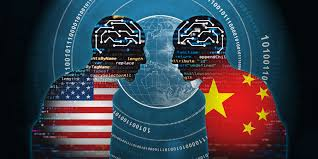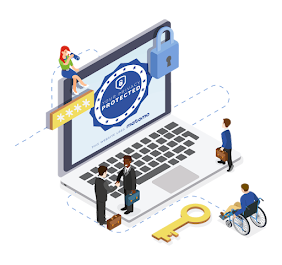Artificial Intelligence or AI has become so revolutionary that it has started determining peoples futures and driving competition around the world. The research and advancement of AI has led investors thinking, leading them to determine whether a companies investment in AI determines the long term success of the institution. However It has seemingly came out of nowhere, and like most revolutionary technologies do. I mean think about the smartphone, no one saw it coming until Steve Jobs famous unveiling. However, AI's impact seems to be just as, if not, bigger than the early 2000s internet boom. It is beginning to be implemented into every part of life similar to how the internet and devices were after their creation. But what really is this new technology, AI?
Artificial Intelligence is essentially a technology that solves question's like a human would, it just doesn't need human assistance in order to do so. Similar to a human, artificial intelligence can take from previous interactions and learn form them in order to improve. Meaning that it is constantly learning as it is used more and more over time.
AI progress is so critical because as we have talked a little about in class, it has the ability to effectively increase productivity, reduce effort, and increase multitasking. And as it only continues to get better and better over time it will only further the impact. However it will also lead to some severe complications and problems as time goes on. Mostly in the area of advancing AI too far too fast.
AI can shape many areas of life as we explained earlier. The first of which being corporations, as they continually take every effort to reduce cost, increase revenue, and drive the bottom line. With the invention of AI, it has created an easiest method of doing so. The biggest cost to corporations is people, and if you can replace people with AI, then you can increase that bottom line. However this is risky to the overall economy because with fewer people needed in corporations, it creates a system where many people no longer possess the skills to get a job. Which would increase unemployment and drive inequality around the world. A leading example of this would be in the trucking/shipping industry, in which self driving cars are a massive threat to put the entire industry. There is also no ideas of what else these people would provide instead of truck driving, as most of them have never had another occupation.
Secondly would be industries because similar to corporations, industries are led by competition and are able to sell whatever product or service the industry focuses on. If one company starts using AI in order to gain an advantage on the entire industry, all the rest must follow suit in order to compete. If there is no competition, smaller companies will be killed and will lose the ability to attract customers and make money. This example would also only add to the problems of unemployment and inequality of wealth which we're talked about with corporation's.With all of this I think artificial intelligence is one of the greatest human achievements we have ever seen. It has the ability to progress our society by leaps and bounds, however similar to Kai Fu Lee, I think we have to be careful about how we move forward. We can continue to drive for advancement and innovation, however we must also call for regulation. Artificial Intelligence has the opportunity for growth and it is an industry and skill that many people don't even understand to this day. Especially the elected officials who get to make the decisions regarding it. So, staying up to date and researching how it works and who is using it is important. We also must work together with China in order to achieve this idealogical society and figure out the dynamic of artificial intelligence in our world because as we have seen in the past, intense competition over technology between world superpowers can lead to disastrous consequences.











